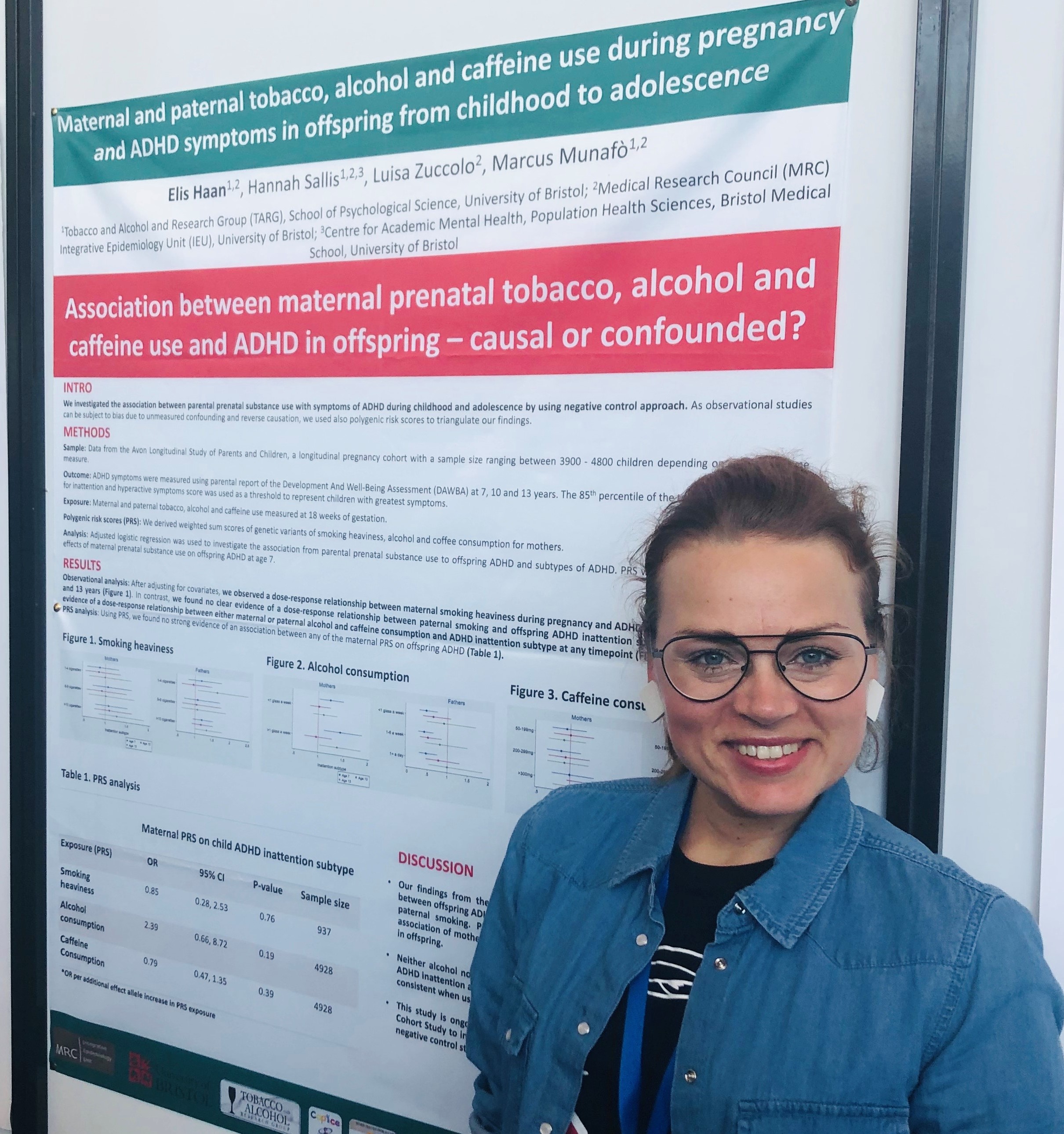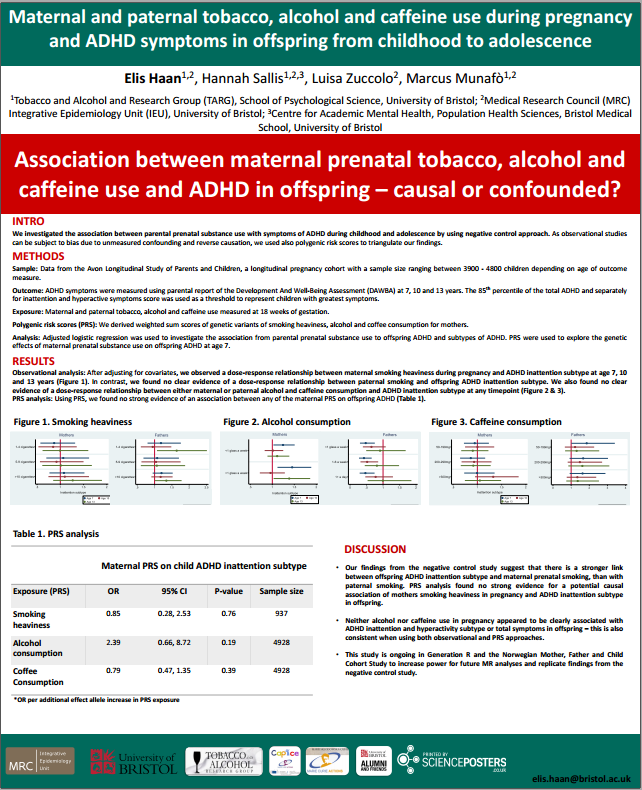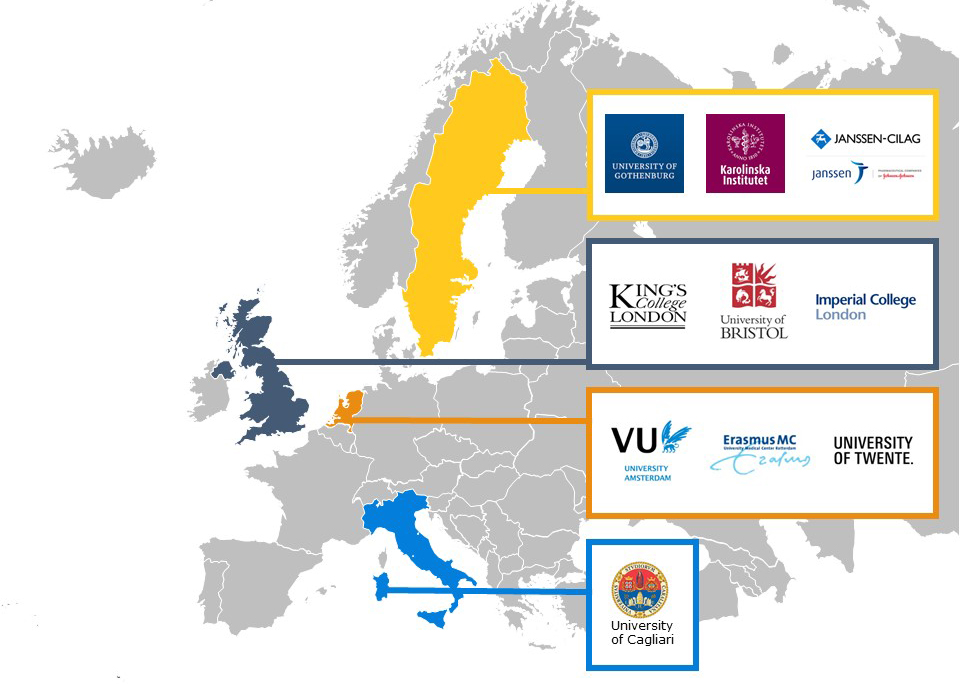This article contains information on the poster "Maternal and paternal tobacco, alcohol, and caffeine use during pregnancy and ADHD symptoms in offspring from childhood to adolescence " presented by Elis Haan, ESR in the CAPICE project, at the Developmental Origins of Health and Disease (DOHaD) conference in Melbourne, Australia, 20-23 October, 2019.

Poster details:
INTRO
We investigated the association between parental prenatal substance use with symptoms of ADHD during childhood and adolescence by using a negative control approach. As observational studies can be subject to bias due to unmeasured confounding and reverse causation, we used also polygenic risk scores to triangulate our findings.
METHODS
Sample: Data from the Avon Longitudinal Study of Parents and Children (ALSPAC), a longitudinal pregnancy cohort with a sample size ranging between 3900 - 4800 children depending on the age of outcome measure.
Outcome: ADHD symptoms were measured using the parental reports of the Development And Well-Being Assessment (DAWBA) at 7, 10 and 13 years. The 85th percentile of the total ADHD and separately for inattention and hyperactive symptoms score was used as a threshold to represent children with the greatest symptoms.
Exposure: Maternal and paternal tobacco, alcohol and caffeine use measured at 18 weeks of gestation.
Polygenic risk scores (PRS): We derived weighted sum scores of genetic variants of smoking heaviness, alcohol and coffee consumption for mothers.
Analysis: Adjusted logistic regression was used to investigate the association from parental prenatal substance use to offspring ADHD and subtypes of ADHD. PRS was used to explore the genetic effects of maternal prenatal substance use on offspring ADHD at age 7.

RESULTS
Observational analysis: After adjusting for covariates, we observed a dose-response relationship between maternal smoking heaviness during pregnancy and ADHD inattention subtype at age 7, 10 and 13 years (Figure 1). In contrast, we found no clear evidence of a dose-response relationship between paternal smoking and offspring ADHD inattention subtype. We also found no clear evidence of a dose-response relationship between either maternal or paternal alcohol and caffeine consumption and ADHD inattention subtype at any time point (Figure 2 & 3). PRS analysis: Using PRS, we found no strong evidence of an association between any of the maternal PRS on offspring ADHD (Table 1).
DISCUSSION
• Our findings from the negative control study suggest that there is a stronger link between offspring ADHD inattention subtype and maternal prenatal smoking than with paternal smoking. PRS analysis found no strong evidence for a potential causal association of mothers smoking heaviness in pregnancy and ADHD inattention subtype in offspring.
• Neither alcohol nor caffeine use in pregnancy appeared to be clearly associated with ADHD inattention and hyperactivity subtype or total symptoms in offspring – this is also consistent when using both observational and PRS approaches.
• This study is ongoing in Generation R and the Norwegian Mother, Father and Child Cohort Study to increase power for future MR analyses and replicate findings from the negative control study.












